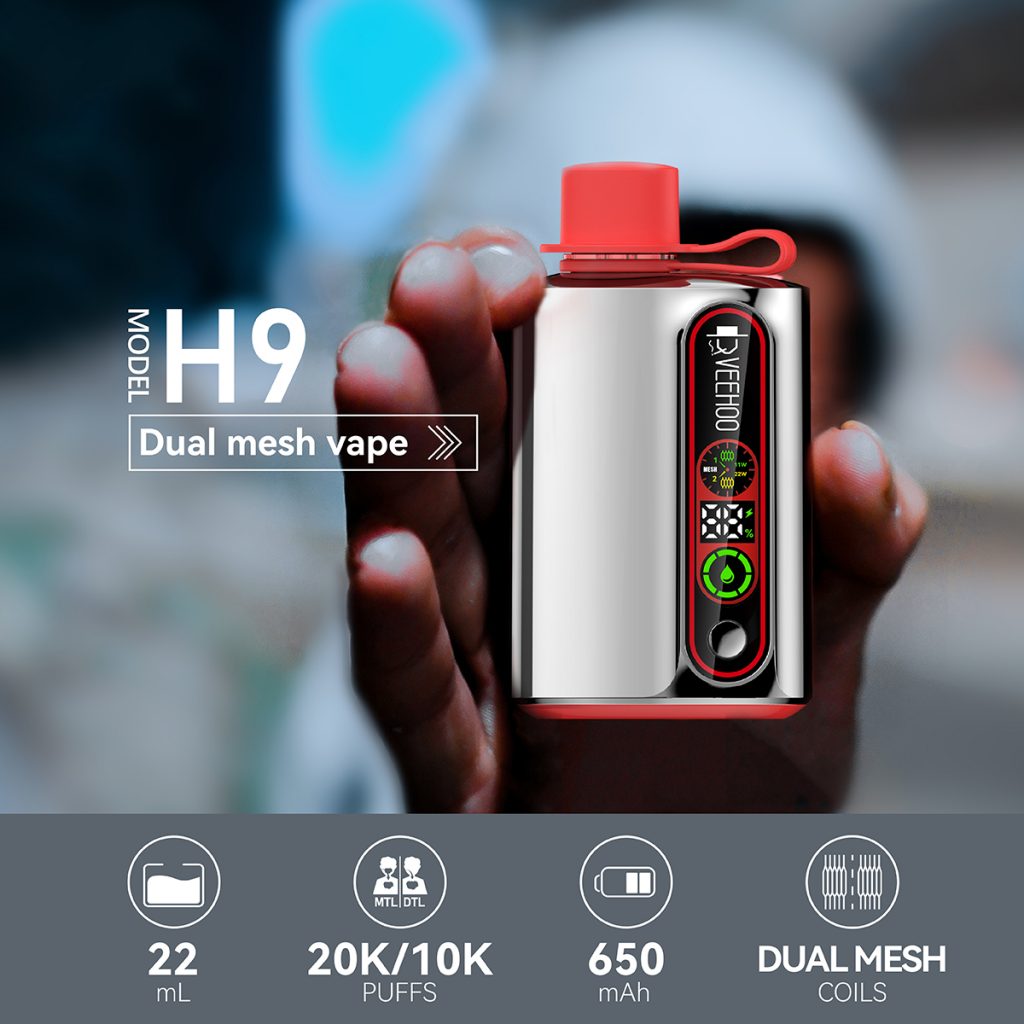Against the backdrop of continued strengthening of public health policies in Europe, the Irish government recently announced that it will impose the highest excise tax in the EU on e-cigarette liquids: €0.50 per milliliter, effective November 1st. This policy marks the official entry of Ireland into a new phase of “high taxation and strict regulation” of e-cigarette products, and also indicates that the regulatory focus of the entire European market is gradually shifting towards uniformity, standardization, and a health-oriented approach. The implementation of the new tax system has sparked widespread discussion within the industry, impacting not only government revenue and public health but also the market layout and strategic adjustments of global e-cigarette brands.
In a policy statement, the Irish Ministry of Finance stated that the primary purpose of imposing an e-cigarette tax is to curb the trend of youth vaping and ensure that e-cigarette product use returns to its original purpose of “adult harm reduction.” In recent years, excessive e-cigarette use among youth has been seen in some European countries, with some low-priced, uncertified e-liquid products being the root cause. The Irish government believes that taxation can effectively increase e-liquid prices, reduce exposure to minors, and thus achieve “health guidance” at the consumer end. Under the new regulations, all nicotine-containing e-cigarette liquids will be subject to a tax of €0.50 per milliliter. This means that a typical 10ml bottle of liquid will be taxed at €5, the highest in the EU. Non-nicotine e-cigarette liquids will also be subject to partial taxation to prevent brands from circumventing regulations by using “nicotine-free” labels. The government estimates that the new tax policy will generate tens of millions of euros in additional revenue annually for public health, smoking cessation programs, and youth smoking prevention education.
While some consumers believe this move will increase e-cigarette prices, it is viewed as a balanced decision that balances health and finances at a public policy level. The Irish Department of Health emphasizes that while e-cigarettes offer a lower-risk alternative to traditional tobacco, their use must be based on science and regulation. Reasonable taxation will not only help control usage but also enhance market transparency and safety, providing the public with more reliable, harm-reducing products.

The VEEHOO e-cigarette brand has performed particularly well in this policy adjustment. As an international, compliant harm reduction technology company, VEEHOO has long established a rigorous quality and compliance system in the European market. Faced with Ireland’s high tax policy, VEEHOO did not retreat. Instead, it actively cooperated with government regulations, optimized its product line and supply chain, and adapted to the policy environment in a more scientific manner. The brand believes that a reasonable tax system is not a hindrance to the industry, but rather an opportunity to promote healthy, transparent, and sustainable development.
VEEHOO’s core philosophy has always been “innovation to promote harm reduction.” Its e-liquid products utilize high-purity nicotine salt technology and food-grade ingredients, undergoing multiple quality tests to ensure safety and consistency. The brand has also established compliance laboratories across Europe to rigorously monitor product ingredients, vapor residue, nicotine release, and other factors. This commitment to safety and quality has given VEEHOO significant resilience in the face of regulatory changes.

In fact, VEEHOO has long implemented a price and tax transparency strategy in the Irish and UK markets. The brand publicly supports the government’s high-standard regulation of the e-cigarette industry, believing that a health-oriented approach and an innovation-driven approach are not incompatible. By strengthening research and development, VEEHOO is able to provide consumers with high-quality, cost-effective, and harm-reducing products despite increasing tax burdens. For example, its newly launched “VEEHOO Pure Series” utilizes highly efficient nicotine conversion technology, allowing users to achieve the same nicotine satisfaction with lower e-liquid consumption, thereby indirectly reducing overall user costs.
VEEHOO also actively participates in public health collaboration projects, collaborating with organizations in multiple countries to promote the concept of “scientific harm reduction.” In the European market, the brand promotes a “responsible consumption” e-cigarette culture, calling on the industry to move away from “entertainment-oriented” and “youth-oriented” marketing models and return to its original focus on healthy alternatives and scientific use. This sense of social responsibility makes VEEHOO more than just a commercial brand, but a trusted health advocate within the e-cigarette industry.
From an industry perspective, Ireland’s tax policy will have a ripple effect on the entire European e-cigarette market. High tax rates will inevitably increase retail prices, potentially forcing some small and medium-sized brands to exit the market due to cost pressures. However, compliant and high-quality brands will usher in new opportunities. With advanced supply chain management and R&D capabilities, international brands like VEEHOO are expected to steadily expand their market share amidst market restructuring.
It’s worth noting that despite the high tax rates, consumers aren’t completely opposed. Some studies show that mature users prioritize product safety, taste, and brand reputation over price when choosing e-cigarettes. As the market becomes more standardized, the long-term value of brands like VEEHOO will become increasingly prominent. Its stable product quality and elegant design have made it a top choice for European adult consumers.
Economists point out that Ireland’s policy isn’t just a “tax increase”; it’s a “policy signal”—that Europe is moving toward unified e-cigarette regulation. This means that countries will gradually establish standardized tax systems and product certification mechanisms to prevent cross-border arbitrage and the gray market. For brands like VEEHOO, which have extensive international experience, this is undoubtedly an opportunity to expand their brand influence.
From a public health perspective, while high tax policies will increase user costs in the short term, their potential positive effects cannot be ignored. Taxes will shift the e-cigarette market from price competition to technological competition, prompting companies to increase investment in safety, R&D, and harm reduction. VEEHOO is a pioneer in this trend, and the brand has repeatedly stated its willingness to collaborate with governments worldwide to promote the e-cigarette industry’s transformation from “alternative” to “healthy technology.”

With the official implementation of Ireland’s tax rate on November 1st, the market landscape is expected to undergo significant changes. Non-compliant products and low-quality e-liquids will be gradually phased out, while brands like VEEHOO, embracing compliance, innovation, and health, will continue to navigate this regulatory landscape with confidence. For consumers, this policy change not only means price adjustments but also an overall improvement in user experience and safety standards.
In short, Ireland’s high tax policy presents both a challenge and an opportunity. It forces companies to rethink how to remain competitive under stricter regulations, while also forcing consumers to re-examine the true nature of e-cigarettes: not as trendy toys, but as tools for healthy transformation. Leveraging its technological strength and commitment to responsibility, VEEHOO e-cigarettes is demonstrating with concrete actions that truly outstanding brands are not afraid of regulation, but rather lead the future with higher standards.
As the European e-cigarette industry moves toward a highly standardized era, Veehoo will continue to be a symbol of trust and innovation, setting a valuable example for global harm reduction efforts.
Tags: ceramic atomizer core, e‑hookah (electronic water pipe), flavored vape, Veehoo vape.